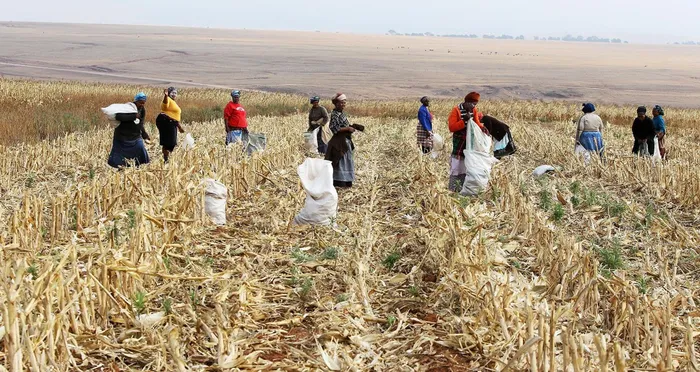
Agricultural Associations believe that the 30% tariff announced by US President Donald Trump, expected to come into effect on Friday, will have a huge impact on the industry and operations.
Image: Phando Jikelo/Independent Newspapers
Agricultural associations believe that the 30% tariff announced by US President Donald Trump coming into effect on Friday will have a huge impact on the industry and operations.
Francois Rossouw, the CEO of the Southern African Agri Initiative (Saai), on Thursday said the tariffs will have an immediate effect on several sectors, particularly citrus, grapes, wine, and nuts, which have been key export products under previously duty-free arrangements.
“For many family farmers, this will mean a sudden loss of competitiveness in one of our high-value markets. It’s not just about economics; it’s about stability. Many farmers plan their production cycles and investments years in advance, and overnight, these tariffs shift the playing field,” he said.
Rossouw added that the US currently accounted for around 4% of South Africa’s agricultural export revenue, but the impact was more concentrated in certain high-value products.
He said while the total volumes may not seem large in national terms, for farmers and industries directly involved, this was a critical market.
“We expect export volumes to the US to decline significantly in the short term, especially for products that cannot absorb a 30% price penalty. Revenue loss could range from hundreds of millions to over a billion rand, depending on how long these tariffs remain in place and whether buyers in the US shift to alternative suppliers,” he said.
“Sectors like citrus and table grapes are highly labour-intensive. If export orders drop or prices fall below production costs, farmers will have no choice but to scale back operations. This could translate into seasonal job losses and reduced employment in packhouses, logistics, and farms themselves.”
Theo Boshoff, CEO of the Agricultural Business Chamber (Agbiz), said the impact of the tariffs will differ between agricultural commodities.
“Whilst we export roughly 6% of our agricultural products to the US, there are products, and even geographical regions within product types, that built their businesses around the US market needs,” he said.
“Citrus, wine, table grapes, raisins, macadamia nuts, fruit juice, onion seeds, ostrich products, and sugar are some of the most affected commodities. Since May, we have been working closely with the government to outline strategies and potential arguments to reduce the tariffs on key agricultural products.”
Boshoff said that as per the impact of tariffs, it will again depend on the reciprocal tariffs faced by competitors from other countries exporting the same products to the US at the same time.
“It differs between commodities, but it is a real challenge that competitors in South America, Turkey, Australasia, etc. have lower rates than South Africa,” he said.
“It is therefore not a simple sum to add the tariffs but more a matter of retaining our shelf space for South African goods in the US market. Whilst many exporters may be looking at alternative markets, it also creates the risk of oversupply or increasing competition with local producers in those markets.”
Boshoff added that it was very regrettable that the tariffs were now entering into effect, but said they hoped it was not too late to arrive at a framework agreement that will lower rates comparable to that of South Africa's largest international competitors.
Farming association TLU SA general manager, Bennie van Zyl, said that for the agricultural sector, in certain sectors it will have a huge impact.
“Commodities such as citrus, the wine industry, and some in the nuts industry and certain other commodities. We export to the United States, but specifically the citrus industry," Van Zyl said.
“It will have a huge impact on them because it is very labour-intensive to participate in the production and harvest processes. We are going to lose jobs if they cannot export to the United States anymore."
BUSINESS REPORT